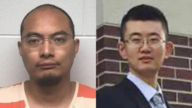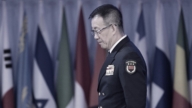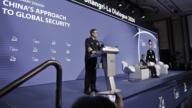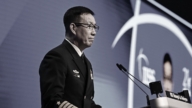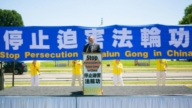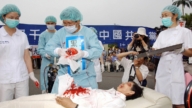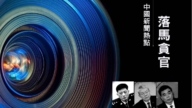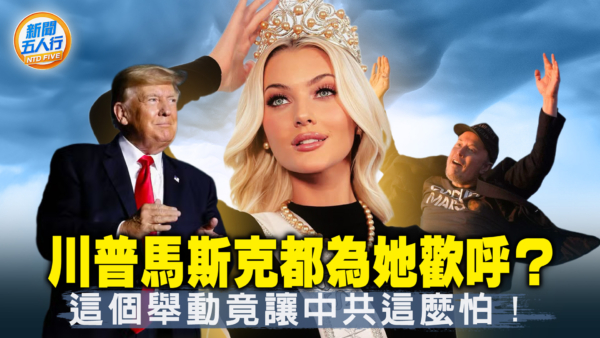【新唐人2012年7月2日訊】日前,中共主席胡錦濤到港出席香港回歸15週年紀念活動,香港各界人士組織了多次示威遊行,抗議中共對中國民衆人權等方面的踐踏。為營造慶祝活動的良好氣氛,大陸官方媒體則對香港政治、經濟等方面進行了大量正面報導。不過,報導反映出的兩地巨大差距,卻引起了大陸民眾對中國社會治理和政治制度的反思。
從胡錦濤6月29號到達香港,到7月1號中午前離開,香港支聯會和各界民衆的抗議示威可以說是如影隨形。「法輪大法好」、「平反六四」、「徹查李旺陽死因」等橫幅頻頻出現在胡錦濤出席活動的路途中。
在灣仔會展中心舉行的香港第四任行政長官梁振英就職典禮上,有公民黨成員向胡錦濤大喊「結束一黨專政」。「七一」大遊行的人數更是遠遠超過預期的5萬人。
面對香港民眾的不滿和抗議,中共當局試圖利用媒體為慶祝活動創造良好的氣氛。官方媒體突出報導大陸對香港的支持,並強調了香港的反腐成績和民主發展。
「英國廣播公司」《BBC》認爲,這些報導恰恰讓中共當局「後院起火」。由於大陸民眾看到香港政府廉潔,法制健全,食品安全有保障,許多人提出疑問:同是中國公民,香港人有的,為甚麼大陸人無法企及?
6月初,《中國青年報》曾登出頭版文章《香港:對腐敗「零容忍」》;7月1號,《新京報》又稱讚香港有運作良好的廉政體系,對腐敗「零容忍」。網友們由此聯想到了大陸貪腐盛行的現狀。
另外,香港新任特首梁振英的「住宅違建醜聞」,導致自家住房違建部分被清拆,不得不向公衆道歉。大陸網民發出感慨,說:「大陸強拆屁民的房子,香港拆特首的房子,差距啊!」
浙江民主人士來金彪認爲,回歸前,香港民衆在英國的民主領導方式下,「民主」的概念深入人心,甚至已經形成了一種生活方式。中共爲了平復香港民衆,拋出了所謂的「一國兩制」,但從某種意義上講,這是對大陸民衆的侮辱。
浙江民主人士來金彪:「(大陸)老百姓受冤屈了以後,要去訴冤也必須要得到他(中共)同意,他認爲你可以訴冤你才可以去訴冤;他不同意你訴冤你就不能訴冤。所以呢,才出現了一個合法上訪和非常上訪之分。這在全世界都是一個大笑話。而且這個大笑話只有在偉大,光榮,正確的(中共)指導下才實現的。」
《BBC》文章還舉例,在大陸,有毒食品氾濫,但提供給香港的食品安全率卻達到了99.999%。《廣州日報》在一個社評中說:「供港食品99.999%的安全率說明:原來食品安全並非像某些官員、『御用』專家所說的那樣艱難,『階段論』、『國情論』可以休矣。」
有網民戲稱,這是食品安全領域的「一國兩制」。更有網友質問當局:「大陸人永遠是次等公民嗎?」
大陸自由撰稿人劉逸明認爲,香港的民主制度和司法獨立,對食品安全和保護民衆的利益起到了很關鍵的作用,然而大陸的專制制度卻決定了有毒食品必然氾濫。
劉逸明:「你看毒奶粉那麽猖獗,但趙連海就因爲幫毒奶粉受害家庭包括自己進行維權,結果不但沒有效果,反而被抓進監獄判幾年刑。這就是中國的現實。根子還是在這個社會制度不民主上面。」
不過,劉逸明坦言,香港的民主自由度,在北京當局的壓制下正在逐年下降。
《BBC》也認爲,香港的新聞自由和政治民主化仍然面臨諸多挑戰。但是,香港的法治、民主和自由正在激勵大陸民眾要求變革的訴求,並使獨裁的中共當局越來越難以自圓其說。
採訪/劉惠 編輯/李明飛 後製/鍾元
The Chinese Communist Party’s (CCP) publicize Hong Kong’s
achievements creates visibility of the CCP’s double standards
CCP president Hu Jintao’s stayed in Hong Kong to attend
activities marking 15th anniversary of Hong Kong’s handover.
Various groups organized protests about Chinese Communist
Party (CCP)’s violating human rights of Chinese people.
To create an ambience of celebration, the CCP’s mouthpiece
media have made a lot of positive reports on Hong Kong’s political and economic achievements.
However, these reports also reflect the huge difference
between China mainland and Hong Kong.
This has induced many Chinese to rethink the CCP’s governing
actions under its dictatorship regime.
Hu Jintao arrived in Hong Kong on June 29th and left noon
on July 1st.
The Hong Kong Alliance in Support of Patriotic Democratic
Movements of China and other groups protested wherever Hu went and stayed.
Banners such as"Falun Dafa is good", “Vindication of
Tiananmen Square incident” and
“A thorough investigation of Li Wangyang’s death"
appeared frequently on Hu’s way to attend activities.
At Leung Chun-ying’s swearing-in ceremony as the fourth
Chief Executive of Hong Kong,
a Civic Party member shouted to Hu Jintao
“Bring to an end of the one-party dictatorship".
Furthermore, the number of people attending the July 1st
Parade far exceeded the expected 50,000.
Having such massive protests from Hong Kong people,
the CCP tried to create an ambience of celebration via its media.
Most official reports concentrated on validating Hong Kong’s
achievements on anti-corruption and democratic development.
Also how the CCP via the mainland has supported Hong Kong
since the handover.
A BBC report pointed out that these reports had caused the
CCP trouble inside the China mainland.
As many found that Hong Kong had clean government,
sound legal system and safe food,
they questioned why the Chinese in the mainland could not share
the same as Hong Kong people as both of them are Chinese citizens.
In early June, the China Youth Daily published a front-page
article titled “Hong Kong: zero tolerance to corruption”.
On July 1st, the Beijing News again complimented Hong Kong’s
anti-corruption system in its report.
Many netizens consequently connected these reports with
rampant corruptions in the mainland.
In addition, the new Chief Executive Leung Chun-ying
apologized to the public for his “illegal building scandal".
The illegal part of his house was also removed.
Chinese netizens remarked that, “in the mainland the CCP
demolishes civilians’ houses;
in Hong Kong the CCP removes the Chief Executive’s house;
what a difference!"
Zhejiang democrat Lai Jinbiao said that Hong Kong people had
incorporated democracy into their living styles under the United Kingdom’s governing before the handover.
The CCP had to throw out the policy of “one country,
two systems" to cater to Hong Kong people;
However, this is a humiliation to the mainland people in
some sense.
Lai Jinbiao, Zhejiang democrat says:" mainland people are
badly treated and can only petition if allowed by the CCP.
If the CCP doesn’t allow you to do that, you can’t.
Therefore in China there is a difference between the
so-called ‘legal petition’and ‘illegal petition’.
This is a joke to the global society, which could only happen
under governing of ‘the great, the bright, and the right’ (party)."
The BBC’s report also wrote that compared to the mainland
with widespread poisonous food, Hong Kong’s food safety was guaranteed to a ratio of 99.999%.
A Guangzhou Daily’s editorial since remarked that “Hong Kong’s
99.999% food safety ratio shows that
solving the food safety problem is not as hard as
some officials and “official" experts have claimed.
It’s time to end the theories which say that it takes time to
solve the problem or the situation is special in China."
Some netizens ironically said this indicated how “one country,
two systems" had been applied in food safety.
Another netizen questioned the CCP authority, “why should
mainland Chinese always be regarded as inferior citizens?"
Mainland freelancer Liu Yiming believes it is Hong Kong’s
democratic regime and judicial independence that
play key roles in protecting civil benefits in food safety
and other fields;
However the dictatorship regime in China mainland inevitably
led to overflow of poisonous food.
Liu Yiming says: “The poisonous milk powder problem being
so serious in China,
Zhao Lianhai was still put into prison for trying to protect
the rights of the victims, including his own family.
This is the reality in China.
The problem roots in the non-democratic regime."
Liu Yiming also made an honest remark that the freedom in
Hong Kong was being damaged every year under the CCP.
The BBC said that there were still challenges in protecting
Hong Kong’s freedom of information and political democracy.
however, the freedom, the democracy and the rule of law
in Hong Kong still encouraged mainland Chinese
to request political reform,
and made it harder for the CCP to glorify
its dictatorship regime.



